Could Orkney join Norway? The history of the Scottish Orkney Islands vote to ‘join Norway’ explained
Citing that the islands have been “failed dreadfully” by Edinburgh and London governments alike, Orkney’s council leader has put forward a motion to explore ‘alternative forms of governance’ outside of the UK.
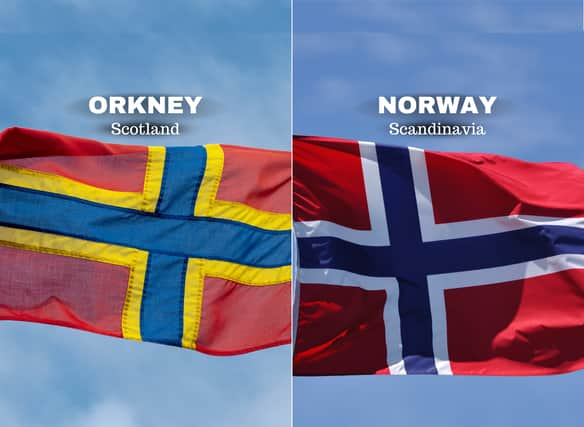

International media is buzzing over reports that Orkney will explore leaving the UK in favour of other governments like Norway with whom the region shares common heritage. At a meeting on July 4, Orcadian councillors voted by 15 votes to six to support a motion by their leader, James Stockan, who requested their officers draft a report on the islands’ constitutional future.
Citing their past as a Norwegian territory as well as frustration with British governance is nothing new for the Orcadian island group who, in fact, are now doing so “for the third time in half a century” according to Yahoo! Life. Last week, Orkney Island Councillors voted to explore not only “alternative forms of governance” but also options of “greater subsidiarity and autonomy” and “Nordic connections”. In 2020, a ‘similar motion’ was passed by Orkney’s neighbour, the Shetland Islands, who were also part of the same Norse kingdom historically.
Advertisement
Hide AdAdvertisement
Hide AdIn the wake of Nicola Sturgeon’s resignation, arrests of prominent SNP figures, a new first minister who The Sun said has “failed in every job he has held in government” on top of other controversies, Scotland’s party is battling harder than ever to retain support. Westminster is also no stranger to criticism especially as the UK leadership has been rocked with instability in the “year of three prime ministers” amid economic crises and other grievances.
Such political developments as well as other complaints from Orcadians including ‘underfunding’ from Britain have left many sympathising with this latest motion. Orkney Councillor Owen Tierney said: “I have been a councillor now for 11 years and I have seen it all. It has been disappointment after disappointment”.
Here’s what we know about Orkney’s bid to ‘leave the UK’, their relationship with Norway, why they are interested in leaving and how Downing Street has responded to that.
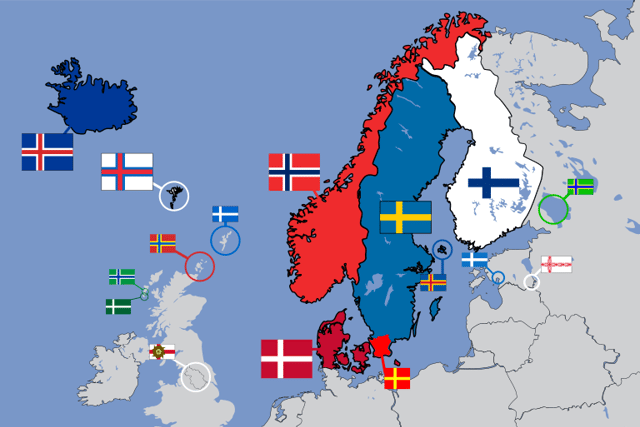

Orkney’s connection to Norway explained
The BBC News reported that Orkney will explore the concept of becoming Norwegian territory again for the first time since 1472. Stockan said: “We were part of the Norse kingdom for much longer than we were part of the United Kingdom. On the street in Orkney, people come up and say to me when are we going to pay back the dowry? When are we going back to Norway?
“There is a huge affinity and a huge deep cultural relationship there. This is exactly the moment to explore what is possible.”
Indeed, the Orkney Islands were under Norwegian rule for over 600 years while Orkney by extension to Scotland and its entry to Great Britain has been part of that arrangement for just over 300 years. Orkney’s Nordic heritage, which stretches back over 1,000 years, started in the eighth century when the islands saw an influx of Viking raiders. By 875, Orkney was annexed by Norwegian King Harald Fairhair and the island along with Shetland became an earldom.
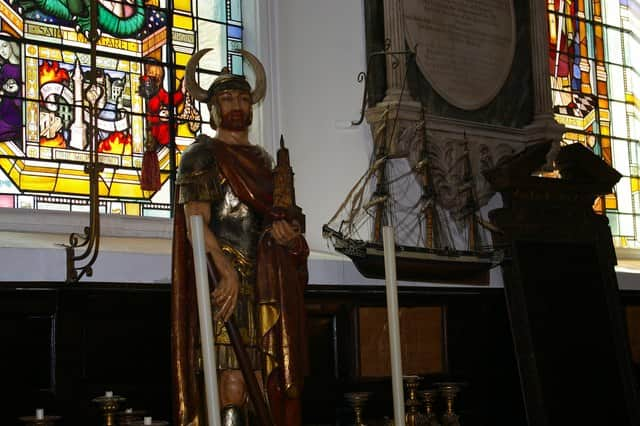

This history between Norway and Orkney can be seen even on the island’s Christian flag symbolism but with unique colours that reflect the Scottish royal coat of arms - until 2001 Orkney’s official flag was the St Magnus Flag which has a Scandinavian cross just like that of Norway, Denmark and Sweden’s. St Magnus was an earl of Orkney and the ruins of his church can still be found on the island of Egilsay today. That said, Norwegian dominion over the Orkney Islands came to an end in the late 15th century.
The National Scot explains: “Previously, Orkney was held under Norwegian and Danish control until 1472 when it became part of Scotland.
Advertisement
Hide AdAdvertisement
Hide Ad“The islands were used as security for the future wife of King James III of Scotland, Margaret of Denmark.”
Remnants of Orkney’s Norse heritage can still be felt by way of their language. Historically, the “sixth Scandinavian language” known as Norn was spoken by Orcadians and those in Shetland and Caithness as it evolved from Old Norse. Sadly, the last native speaker died in 1850, however the Scots language of Orkney features Norn motifs and place names still have Nordic hints scattered throughout.
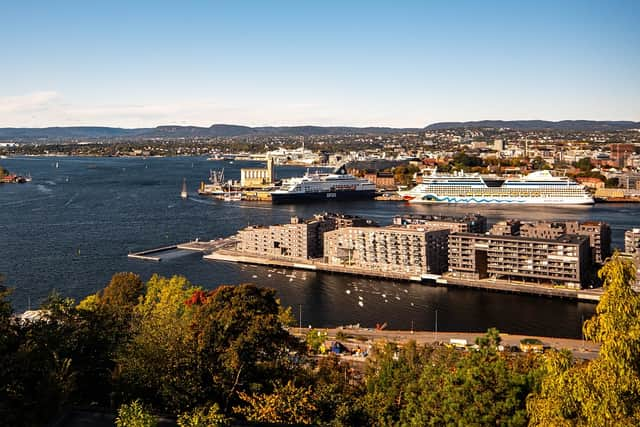

The history of Orkney campaigning to join Scandinavia
In 1967, Kirkwall (the island’s capital which is closer to Oslo - Norway’s capital - than it is to London) and Stromness - the largest settlements of Orkney - saw a campaign calling for the island to go “Back to Denmark” with slogans like “Orkney is dying under British rule, reunite with Denmark now.” The story made headlines in both national and international news media.
This was triggered by the abolishment of Orkney’s local institutions due to “the government’s policy of centralising police forces and water boards into regional bodies” according to The Conversation. Other grievances like the government’s disinterest in shipping strikes and the expense of transportation also fueled the campaign.
The Orcadian newspaper wrote “it was all a joke” that took Britain “for a ride” but also added it had a “serious side”. Orkney’s Scandinavian heritage took centre stage again in 1986 during protests against the expansion of Dounreay nuclear power station in Caithness. In response, Orkney and Shetland activists drafted the Declaration of Wyre.
The declaration was addressed to the kings of Norway and Denmark and asked that they “inquire into the legality in international law of siting a nuclear processing plant … in an area of unresolved constitutional status.” Now, Orcadian officials are preparing a report for how the island will operate in future and look at “Nordic connections”. However, the Herald Scotland reports that Norway’s “government has declined to get involved in Orkney’s possible return to Scandinavia, saying it was a “constitutional” matter for Britain.”
It is also not the first time that Orkney has campaigned for more autonomy in the wake of Brexit. In 2017, councillors supported calls to investigate “whether the people of Orkney could exercise self-determination if faced with further national or international constitutional changes”.
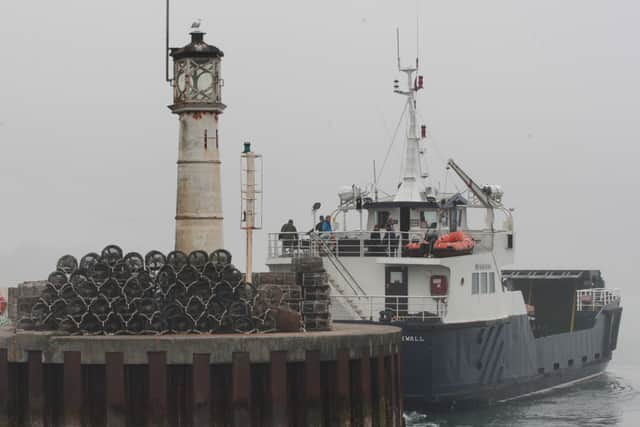

Why does Orkney want to leave the UK?
Stockan confirmed that the latest motion is “not about joining Norway” specifically but rather about grievances with British governance. He said that Orkney receives less funding per head from the Government than other island authorities like the Western Isles and Shetland. According to Yahoo! News, the island’s 22,500-strong population is seeing “growing frustration” as it “does not receive fair funding from Scotland and the UK”.
Advertisement
Hide AdAdvertisement
Hide AdSpeaking to BBC Radio Scotland, Stockan added that Orkney had been “failed dreadfully” by Edinburgh and London and that the ferry fleet connecting the 20 inhabited islands were in urgent need of replacement. He explained that Orcadians are “denied the things that other areas get like RET [Road Equivalent Tariff] for ferry fares”.
Stockan argued that more autonomy could enable the community to get back on their feet, he said: “We’ve got a unique opportunity as we are right at the heart of all the wind projects around our waters.”
However, this is not limited to seceding from the union as there is a wide selection of choice to consider: “There is a far bigger suite of options here – this could even be that we could get our money direct from the Treasury in London and look after our own future.”
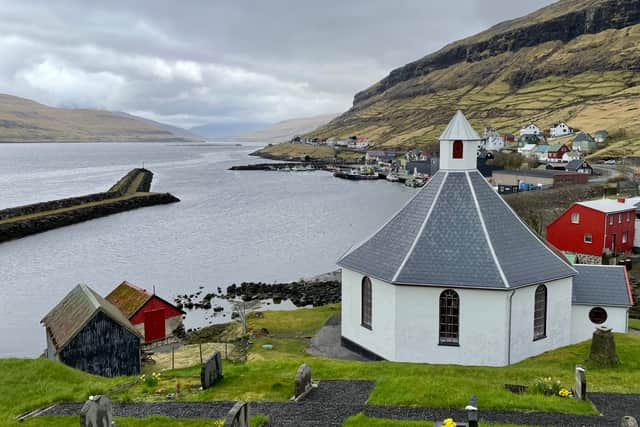

Who else is Orkney investigating?
It is not the first time that the Orkney Council has passed such motions but the key difference of this one is that it mandates the exploration of reviving “Nordic connections”. This means that Orkney could even pursue a connection to other countries like Denmark or Iceland.
According to The National Scot: “Options now up for discussion include becoming a crown dependency, like the Channel Islands and Isle of Man, which would take Orkney out of the remit of the Scottish parliament.
“Alternatively, Orkney could become a British overseas territory, like the Falkland Islands, or pursue the status of the Faroe Islands, a self-governing territory of Denmark.”
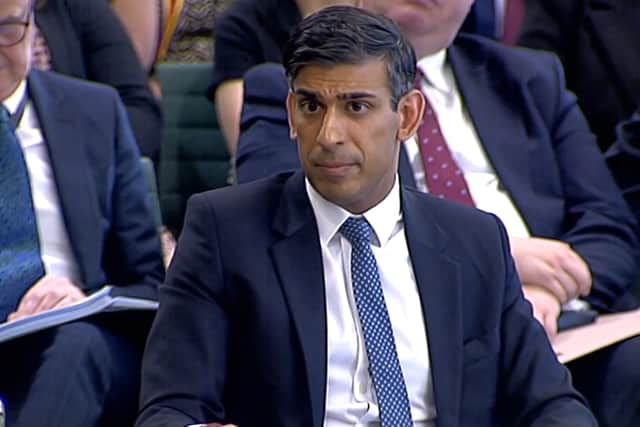

How has Downing Street responded?
According to Sky News, Downing Street has already rejected the idea that Orkney can ‘loosen ties’ with the UK. Last Monday, the official spokesman for the Prime Minister said there is “no mechanism for the conferral of crown dependency or overseas territory status on any part of the UK.
“Fundamentally, we are stronger as one United Kingdom, we have no plans to change that.”
Comments
Want to join the conversation? Please or to comment on this article.
